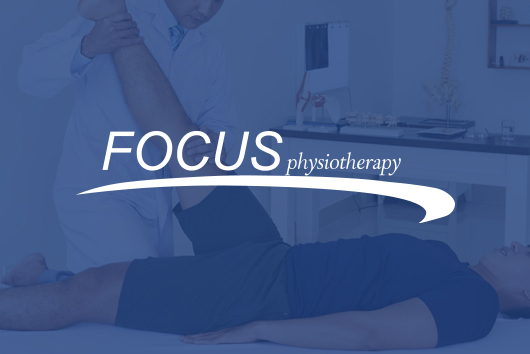Carpal Tunnel Syndrome (CTS) is one of the most common problems affecting the hand, wrist and elbow.
People with this condition may feel pain, numbness and general weakness in the hand and wrist. However, lifestyle changes such as wrist splints, changes to your environment and Carpal Tunnel Treatment through physiotherapy may significantly reduce the impact.
At Focus Physiotherapy, our Registered Physiotherapists ascertain the exact cause of your Carpal Tunnel before choosing the treatment that’s right for you. Typically, successful Carpal Tunnel Treatment North York takes up to a couple of months. However, comprehensive physiotherapy relieves pain and teaches you how to prevent it from recurring.
What is Carpal Tunnel Syndrome?
Carpal Tunnel Syndrome is a common condition that causes pain, numbness, tingling and weakness in the hand and wrist.
Discomfort is caused when the space, known as the Carpal Tunnel, in the wrist narrows. The decrease in area presses on the median nerve and tendons, making them swell, which cuts off sensation in the fingers and hand. Over time, these tissues swell, resulting in pain, numbness, tingling and weakness in the hand.

Our clinic offering leading Carpal Tunnel Treatment in North York conveniently located at 4789 Yonge St, Unit #506. We welcome you to stop by with questions or give us a call at 416-961-2001 or email us today.
Carpal Tunnel Symptoms
Carpal tunnel syndrome symptoms usually start gradually and can include, but is not limited to:
Tingling or Numbness
You may notice tingling and numbness in your fingers or hand, primarily in the thumb and index, middle and ring fingers. You might feel a sensation like an electric shock in these fingers.
Weakness
You may experience weakness and clumsiness in your hand as the median nerve controls the thumb’s pinching muscles
Pain
This sensation may travel up the forearm and towards the shoulder. Symptoms are common at night as many people sleep with their wrists bent. During the day, symptoms may occur when holding objects for prolonged periods, using a hone, driving or reading a book.
Diagnosing Carpal Tunnel
The diagnosis of Carpal Tunnel Syndrome involves a combination of your history, a physical examination, and tests called nerve conduction studies.
A physical examination includes a detailed evaluation of your hand, wrist, shoulder, and neck to check for any other causes of nerve pressure. Your doctor will look at your wrists for signs of tenderness, swelling, and any deformities. They will check the sensation to the fingers and the strength of the muscles in your hand.

Cause of Carpal Tunnel
There is a vast number of factors associated with Carpal Tunnel Syndrome. Although they may not directly cause CTS, they may increase the risk of irritation or damage to the median nerve.
These include, but are not limited to:
Sex
Women are more likely to develop Carpal Tunnel Syndrome than men
This may be because a woman’s wrist bone is much smaller than a man’s, therefore creating a tighter space in which the nerves and tendons have to pass
Workplace Factors
Repetitive stress on the forearm and wrist can lead to compression on the median nerve
Activities like typing, mechanical stress on the palm, vibrating hand tools and extreme wrist motions may aggravate the tendons in the wrist, causing swelling that puts pressure on the nerve
Workers performing assembly line work such as manufacturing, cleaning, packing and keyboarding occupations commonly report this injury
Pregnancy
Hormone changes during pregnancy can cause swelling
Nerve Damaging Conditions
Diabetes, rheumatoid arthritis and thyroid gland imbalances are conditions that are commonly associated with Carpal Tunnel Syndrome
Injury
Any injury to the forearm or wrist can have an impact on the median nerve
Injuries can cause swelling and inflammation, which can lead to a compression of the nerve or restriction of the Carpal Tunnel
Carpal Tunnel Treatment and Therapeutic Responses
Carpal Tunnel Syndrome can improve without treatment and overtime while lessening the strain on the wrists. If it doesn’t, there are several ways to ease the symptoms.
Determining the underlying cause of CTS is essential in formulating an effective treatment plan and managing Carpal Tunnel pain. We determine the root cause of your CTS and provide individualized treatment programs to help you achieve the best possible physical recovery so you can return to normal activities. Once your pain improves, our physiotherapists at Focus Physiotherapy will design a rehabilitation program to help prevent future injuries.
Physiotherapy
Physical therapy incorporates strengthening, stretching and aerobic conditioning, making it an essential component of any Carpal Tunnel treatment plan. Physiotherapy can include dumbbell bench presses that strengthen the upper body or scalar circles that help with the patient’s balance and control.
OHIP Physiotherapy
We are the first choice of OHIP-covered Physiotherapy services within the communities we serve. Our state-of-the-art equipment is now available through OHIP for the patients who meet the government selection criteria.
In-Home Physiotherapy
Home Physiotherapy and Massage Therapy services are excellent for patients suffering from a severe injury or mobility issues relating to carpal tunnel. Physiotherapy at home is very convenient for people whose schedule makes finding the time extremely difficult.
Massage Therapy Treatment
Massage therapy can help maintain healthy muscle tissue in the surrounding area, take the spinal column’s strain, and increase circulation, muscle flexibility, and range of motion.
Laser Therapy and Electrical Modalities
Laser therapy is a medical treatment that uses low-level lasers or light-emitting diodes to alter cellular function. Laser has primarily been shown helpful in the short-term treatment of acute pain.
Acupuncture Treatment
Acupuncture targets specific points along the “meridians” of your body that correspond to nerve pathways affected by the affected nerve. This carpal tunnel treatment method available in North York may help stimulate healing by increasing blood flow.
Our Carpal Tunnel Treatment Centre near North York
Are you looking for Carpal Tunnel Treatment North York to help you find relief? Visit Focus Physiotherapy today, located at 4789 Yonge St, unit #506. Our office features a dedicated exercise studio, state-of-the-art medical equipment, and the most helpful team in town.
About Focus Physiotherapy
Our Focus Physiotherapy Practices are owned and operated by Registered Physiotherapists. We’ve built our practice on our treatment quality, which reflects the highest standards of our profession. Every day, we come to work to provide diligent, practical and effective physiotherapy services that are thoughtful and thorough.
Specializing in trauma recovery and using only the best technology, our high-quality professional care is focused on you. Registered Physiotherapists at Focus Physiotherapy are highly trained, continuous learners who assess, diagnose and treat patients due to injury, severe trauma, disease, neurological conditions and age-related degenerative conditions.
The needs of our patients are our focus. Our quality of care reflects best practices and uses the latest equipment and physiotherapy techniques every time.


